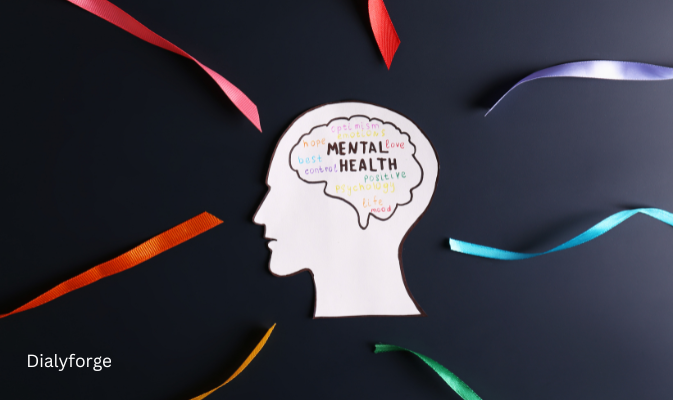Achieving a balance between physical and mental fitness is essential for a healthy, fulfilling life. While physical activity boosts strength and endurance, mental fitness enhances focus, emotional stability, and resilience. Together, they create a holistic approach to wellness. This guide explores practical tips to harmonize your physical and mental fitness, ensuring you thrive in every aspect of life.
1. Understand the Connection Between Physical and Mental Fitness
Physical and mental health are deeply interconnected:
- Exercise Reduces Stress: Physical activity releases endorphins that lower stress and anxiety.
- Mental Health Supports Consistency: A positive mindset fosters motivation and discipline in physical routines.
- Enhanced Cognitive Function: Regular exercise boosts brain health, improving memory and focus.
Key Insight: Focusing on both aspects amplifies overall wellness.
2. Prioritize Regular Physical Activity
A consistent workout routine is foundational for balancing fitness.
- Start Small: Begin with 20–30 minutes of moderate exercise, 3–5 times a week.
- Incorporate Variety: Alternate between strength training, cardio, yoga, and stretching.
- Engage in Activities You Love: Dancing, swimming, or hiking can make workouts enjoyable and sustainable.
Pro Tip: Choose activities that challenge your body while uplifting your mind.
3. Practice Mindfulness for Mental Fitness
Mental fitness involves staying present, managing stress, and cultivating a positive mindset.
- Meditation: Dedicate 5–10 minutes daily to mindfulness or guided meditations.
- Journaling: Reflect on your goals, emotions, and accomplishments to maintain clarity.
- Gratitude Practice: Write down three things you’re grateful for each day.
Tip: Pair mindfulness with physical activities like yoga or tai chi for maximum benefits.
4. Balance Your Workouts with Rest and Recovery
Overtraining can strain your physical and mental health.
- Schedule Rest Days: Allow your body and mind to recover fully.
- Practice Active Recovery: Engage in light activities like walking or stretching.
- Sleep Well: Aim for 7–9 hours of quality sleep to recharge.
Insight: Recovery is as important as the workout itself for overall balance.
5. Fuel Your Body and Mind with Proper Nutrition
A balanced diet supports both physical performance and mental clarity.
- Include Whole Foods: Focus on lean proteins, healthy fats, and complex carbs.
- Stay Hydrated: Drink plenty of water to maintain energy and focus.
- Limit Sugary and Processed Foods: These can lead to mood swings and fatigue.
Idea: Try mindful eating to connect with your meals and savor each bite.
6. Incorporate Social and Emotional Wellness
Connecting with others enhances both physical and mental health.
- Workout with Friends: Exercising in groups fosters accountability and enjoyment.
- Talk It Out: Share feelings with trusted friends or a therapist to alleviate stress.
- Build a Support System: Surround yourself with people who encourage your fitness journey.
7. Manage Stress Effectively
High stress disrupts both physical and mental balance.
- Practice Deep Breathing: Use techniques like box breathing during tense moments.
- Set Boundaries: Learn to say no to avoid burnout.
- Engage in Relaxing Activities: Hobbies like painting, reading, or gardening can calm the mind.
Takeaway: Managing stress strengthens your capacity for both physical and mental challenges.
8. Track Progress in Both Areas
Monitoring your journey helps you stay aligned with your goals.
- Use fitness apps: Track workouts, steps, or meditation sessions.
- Reflect Weekly: Note physical achievements and mental breakthroughs in a journal.
- Celebrate Small Wins: Reward yourself for progress, like reaching a fitness milestone or maintaining a gratitude practice.
9. Avoid Overcommitment
Balancing both aspects shouldn’t feel overwhelming.
- Set Realistic Goals: Aim for gradual improvements rather than perfection.
- Embrace Flexibility: Adjust routines when life gets busy without guilt.
- Remember, it’s a journey: fitness is about progress, not an endpoint.
10. Embrace a Holistic Approach
Balance doesn’t mean equal focus on both at all times. Instead, align your efforts with your current needs:
- When Stressed: Focus on mental fitness with mindfulness and restorative yoga.
- When Energetic: Engage in intense physical workouts to harness your drive.
Key Insight: Adaptability ensures long-term success in balancing fitness.
Conclusion
Balancing physical and mental fitness is the cornerstone of a healthy, empowered life. By prioritizing regular activity, mindfulness, proper nutrition, and social connections, you can create harmony between your body and mind. Remember, progress takes time—be patient and enjoy the journey toward holistic wellness.

